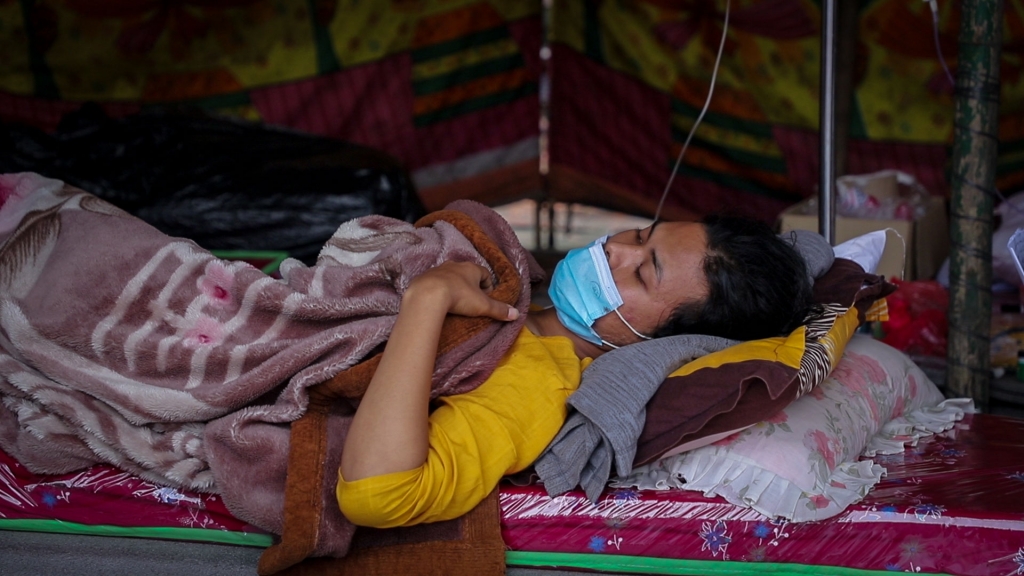“I prefer to call myself a politician,” says Samaira Shrestha who was recently selected as a central committee member of the Bibeksheel Sajha Party. There, she leads the Indreni department, a cell especially dedicated to the LGBTIQ+ community, the first such section in a Nepali political party.
Shrestha, 22, a transwoman, has always dreamt of working for her community. She feels lucky to have her family’s “100 percent support” for her chosen sexual orientation. “But despite the family support I faced considerable challenges outside my home,” she says, recalling her days at school where she was bullied and harassed by teachers and colleagues alike. Things were no better in her home community.
“My family does not place any kind of restrictions on me,” she says, citing the reason for her active community participation these days. By profession, Shrestha is a model and a theater artist but now she is more into political and social activities.
Shrestha says her political involvement was not preordained even though her parents and grandparents always encouraged her to play an active part in the society. “It is hard dealing with our straight-patriarchal community yet I am determined to make a mark in it,” she says. For one, Shrestha wants more political and community leaders to emerge from the LGBTIQ+ community.
When nearly the whole world was under lockdowns, there came a major turning point in Shrestha’s life. She underwent a gender reassignment surgery and was on complete bed rest. Shortly, she started a YouTube channel to communicate and overcome her introverted nature. At that time, she heard about a woman in a Covid-19 quarantine facility being raped by a police constable in Sarlahi. “It surprised me that my friends took this incident as normal,” says Shrestha. Considering the social and emotional toll on the woman victim, “the government was completely incompetent to do her justice.”
In the meantime she also saw on social media posts about the “Enough is Enough” protests, partly organized against the government’s mishandling of the Covid-19 pandemic. She decided to join the nonviolent resistance, including by going on a hunger strike. “In those nine days of hunger strike, my whole outlook on life changed,” says Shrestha.
A pet lover, Shrestha slept with street dogs and homeless kids during her stay at Basantapur in course of the strike “At least I had a blanket with me. But what about the people who are forever homeless?” she questions.
In Basantapur, many people, mostly youths, visited her regularly and lent her strong support. “It was such a beautiful exchange of positivity,” Shrestha describes the anti-government protest. “I was lucky to be a part of the strike that helped create social consciousness among the youth.”
The social activist believes it is the responsibility of citizens to hold their government accountable. “In a democracy like Nepal, we the people are the kingmakers and it’s upon us to keep the government honest,” she says. “If you love your country, what you cannot do is turn away from politics saying it is a dirty game.”
Compared to the past, today’s youths, Shrestha reckons, are more concerned about their country’s fate. But she also worries a lot about members of the LGBTIQ+ community in Nepal who lack awareness, basic rights and education. They also face considerable mental and physical traumas. Also, the state treats them like strangers as same-sex marriage is yet to be officially recognized in Nepal. Moreover, even though she identifies as a woman, Shrestha still has a citizenship that categorizes her as a male.
People advocate for the better treatment of the LGBTIQ+ community but real acceptance is still rare. Shrestha hopes everyone was a little more empathetic to the members of the community and allowed them to live the way they want to.













